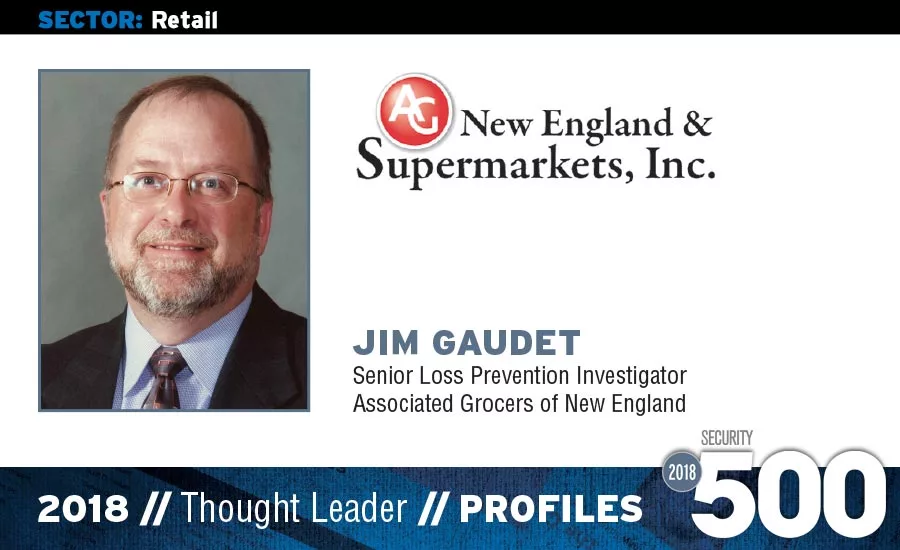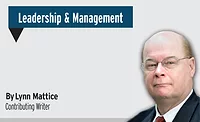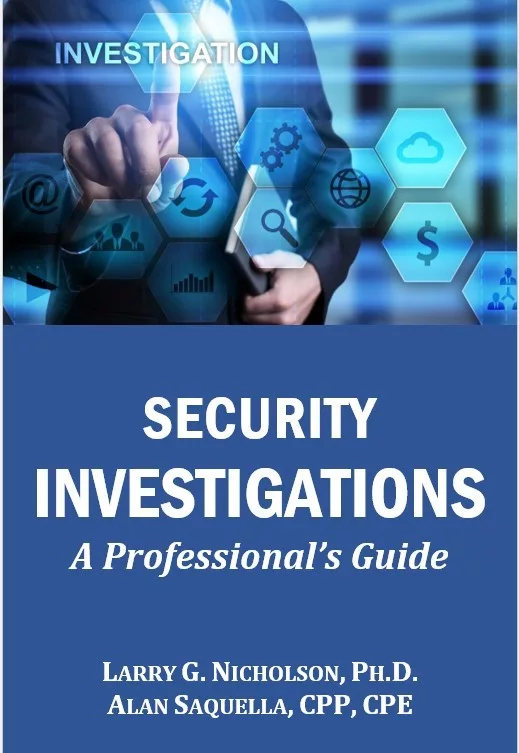Jim Gaudet: A Mile Wide and Inches Deep

“I like that our company particularly, and this sector generally, is really customer-service oriented and a people industry,” says Jim Gaudet, Senior Loss Prevention Investigator for Associated Grocers of New England. “Everyone has to eat, and food is vital. Our region has had two hurricanes come through (Sandy and Irene) and tremendous snow and ice storms, and those small town, independent markets are life lines for so many people in our service area that can’t walk to the big box supermarket downtown to stock up on milk, eggs and bread.”
Associated Grocers of New England, Inc., is the largest retailer-owned, wholesale grocery Distribution Center in New England. Serving the needs of Independent Retail Grocers of every store size and format... multi-store independent supermarket groups, community supermarkets, country stores and convenience retailers.
Gaudet spent 24 years in law enforcement, with specific experience in conducting and overseeing criminal investigations, as well as serving as a Town Police Department District Court Prosecutor. “When I retired, I had no idea I would work in the grocery distribution and retail industry – although my father was a butcher for most of his adult life, his father was a warehouseman for the old A&P Company, and his father ran a small neighborhood grocery store shortly after emigrating from Canada,” he says. “A mutual friend of my current boss told me about an opening at the company. After spending three hours with him, I came to work for him. At first, we were a department of two with our own proprietary security force, running five corporate retail locations in NH. Today, we have three full-time Loss Prevention employees, a contract security force at the corporate offices and distribution center, and loss prevention responsibilities for 14 retail locations in VT and NH.”
Gaudet’s daily challenges include the constant multi-tasking and response to incidents and events as they occur, in addition to supply chain/logistics, as well as retail, and all of the risk management or Loss Prevention responsibilities that go with it. “And the tools and methods used to deal with them are varied,” he explains. “Our knowledge base about operations in this enterprise has to be a mile wide and often more than a couple of inches deep. We need to understand how merchandise is ordered into the warehouse, how it is accounted for in inventory and then decremented with the outbound ordering process. We need to understand how the groceries get from the racks to a pallet to a door then onto a trailer, and look at all the vulnerabilities along that supply chain to make sure the ‘right goods get to the right customer at the right time (and the right price).’ Our distribution center and corporate offices have anywhere from 200-250 people total on the premises during normal weekday business hours – including vendors, contractors, OTR drivers and visitors. The rest of the hours (evenings and overnights), we have anywhere from 75-100 people in the warehouse on selecting, loading and our drivers preparing to leave. We are responsible for their safety and security, access control and CCTV monitoring on the premises. A lot of the product in our warehouse is valuable and concealable – making it a high shrink potential or risk.”
“Remarkably, we do not tend to deal with as much compliance and enforcement as many would think, and invest a great deal of time and energy to education and training,” he adds. “But if I had to pick one thing that is the most difficult, it is trying to continue to do more with the same resources and maintain delivery of high quality services to our internal and external customers.”
Gaudet says that it’s not often easy to quantify value for a service-based department such as LP, as it often doesn’t generate meaningful revenue except through restitution. “And while we don’t always know what we don’t know, our inventory numbers would suggest that our shrink numbers are very good, so I’m fairly confident that internal theft is pretty well controlled,” he says. “Our controls that are in place are very solid, and we are also being encouraged by the Loss Prevention Manager to conduct random audits of numerous processes – from ‘bread-crumbing’ our fleet of drivers and reviewing the electronic logs, to conducting at least annual retail store audits, to random bag checks, or any number of procedures we have in place. And more often than not, the value is not in necessarily catching someone doing wrong or violating
policy, but in the fact that we do check at all instead of putting a policy or procedure in place and then letting it die off after it starts. While it does keep us up at night, I firmly believe that the fact that we have not had any significant losses, acts of workplace violence or other negative incidents tells me that we are at least perceived as being very vigilant and not worth the risk,” he says. He is also fortunate, from a budgeting perspective, to have full C-Suite support.
In his free time, Gaudet says he is a “softball Dad” to his four daughters. “I have been involved in fast pitch softball as a coach, board member and patched umpire for more than 25 years. I am the NH State Umpire in Chief for Babe Ruth Softball, and have been honored and privileged to have been invited to officiate at seven Babe Ruth World Series tournaments,” he says. “I am also an avid genealogist – concentrating mostly on French-Canadian and Acadian lines, and am the Past President of the American-Canadian Genealogical Society in Manchester, NH. And I am one of those guys who actually likes yard work – in all the northern New England seasons.”
Critical Issues
- Workplace Violence/Active Aggressor
- Lack of Training for Non-Security Personnel
- Staffing
Looking for a reprint of this article?
From high-res PDFs to custom plaques, order your copy today!






